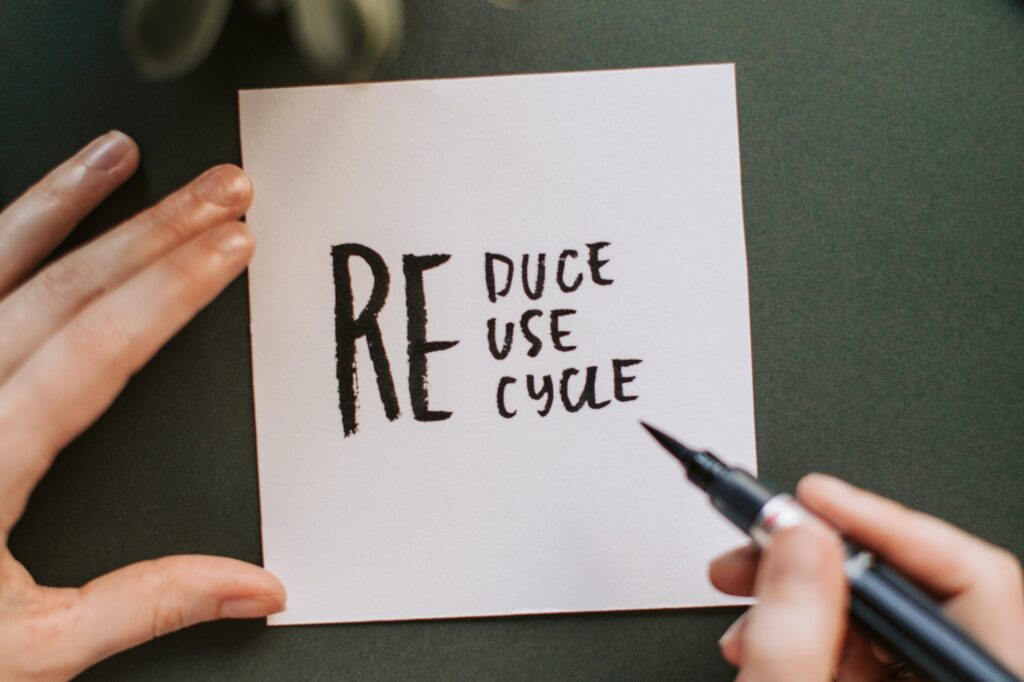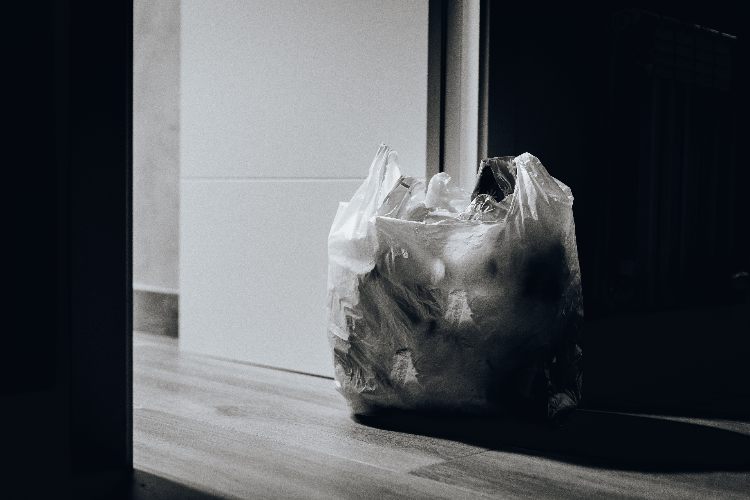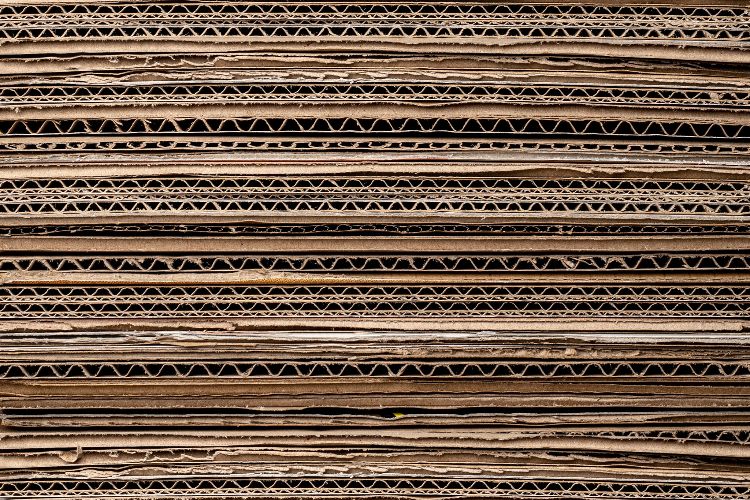Do you live in Ewing, NJ, and want to know more about recycling? It’s crucial to adopt eco-friendly practices to preserve the beauty of our town and contribute to a healthier planet. One of the most impactful ways to achieve this is through effective recycling.
Understanding Ewing’s Recycling Program
Before delving into recycling tips, we must familiarize ourselves with Ewing’s recycling program. The township follows a single-stream recycling system, making it convenient for residents to recycle various materials in a single container. Accepted materials include paper, cardboard, glass bottles, aluminum cans, and plastic containers labeled #1-7.

What Are the Best Recycling Tips?
Creating an eco-friendly community for our future generation starts with you and me. Recycling is more than tossing an item in the green bin. Understanding how to recycle correctly is crucial and can take time and effort. Here are our Ewing recycling tips.
Designate a Recycling Container
Having a recycling bin simplifies the process. Get one and place it in areas that generate the most garbage, like the kitchen. Also, tell your family about the recycling bin and how to use it. Involving everyone at home can improve recycling habits by 15%.
Additionally, get more than one recycling bin. It is convenient as you don’t have to go to another room to find a recycling bin.
Properly Sort Your Recyclables
While Ewing’s single-stream recycling allows the convenience of placing multiple materials in one bin, it’s crucial to ensure proper sorting. Any non-recyclable debris can contaminate an entire batch of recyclable garbage. Removing contaminants such as food residue or liquids from recyclables ensures they are recycled.
Educate Yourself on Accepted Materials
Stay informed about the types of materials accepted in Ewing’s recycling program. You can avoid accidentally throwing non-recyclable waste in the green bin when you know the exact items to recycle, streamlining the recycling process and minimizing the risk of contamination.
Typical recyclables include paper and cardboard, glass, metal, and certain types of plastic. Did you know that you can also recycle concrete and wood?
Horizon Disposal Services specializes in C&D recycling. Whether demolishing, building, or landscaping, there are many things you can recycle instead of landfilling.
Don’t Recycle Plastic Bags
Plastic bags are the biggest problem in recycling. It sounds counterintuitive, but plastic bags can’t enter your recycling bin. First, they can stick to the recycling equipment, causing a breakdown.
Also, separating plastic bags from other materials in recycling is challenging, rendering them useless. Don’t put recyclables in a plastic bag before throwing them in the bin; recycling loose items is the best way.

Break Down Cardboard Boxes
To optimize recycling space and facilitate the collection process, break down cardboard boxes before placing them in your recycling bin. Flatten boxes and stack them neatly to maximize space in the recycling truck. This practice contributes to a more efficient recycling process and helps your fellow residents by preventing unnecessary overflow.
Educate Your Community
Spread awareness about recycling practices within your community. Organize informational sessions, distribute pamphlets, or use social media platforms to share tips and guidelines for effective recycling. A well-informed community is more likely to participate actively in recycling efforts, creating a positive ripple effect that benefits the entire town.
What We Recycle At Horizon Disposal Services
Horizon Disposal is here to cover all recycling needs through Mercer Group International. We recycle various materials, including residential and construction waste.
Paper and Cardboard Recycling
Paper and cardboard are part and parcel of our lives, creating millions of tons of waste materials. Thankfully, technology has made it possible to recycle these types of waste. We accept many paper products, from newspapers and magazines to cardboard packaging. Here are some tips to enhance paper and cardboard recycling in Ewing.

Remove Non-Recyclable Paper and Cardboard
Before placing paper and cardboard in the recycling bin, ensure they are free of contaminants such as plastic packaging, tape, or any non-paper materials. Contamination can affect the quality of recycled paper.
Additionally, ensure that the paper and cardboard are dry and have no food residue. Empty your pizza and cereal boxes and dry any wet cardboard and newspapers.
Shred Responsibly
If you choose to shred paper for recycling, be mindful of the shredding size. Larger shreds are preferable, as smaller particles can be challenging to process at recycling facilities. Only recycle something bigger than a credit card.
Flatten cardboard so you can create more space in the recycling receptacle.
Reuse Cardboard Boxes
Consider reusing cardboard boxes before recycling them. Many local businesses or neighbors may find a second use for sturdy boxes, reducing the need for new packaging.
Concrete and Wood Recycling
While many people focus on recycling household garbage, you may encounter landscaping, construction, and demolition debris. These materials, too, are recyclable. They make perfect raw materials for new construction and other products manufacturing.
At Horizon Disposal, we handle small and large-scale C&D recycling. For instance, we use construction and demolition waste to make road bases, fills, and aggregate.
A crucial tip to recycle construction and wood waste is to get a roll-off container. The perfect dumpster provides enough space to dispose of all the C&D material.
We make the process more straightforward thanks to our comprehensive waste management services. Moving construction and yard waste to a recycling facility can be challenging. Horizon Disposal will provide ideal roll-off dumpsters where you can load all the debris.
Whether you’ve got asphalt, concrete, bricks, blocks, wood, or green waste, you can be confident that we’ll provide a reliable solution.
If you have small amounts of wood or concrete, consider repurposing them for DIY projects or outdoor landscaping features. Wooden pallets, for example, can be transformed into garden furniture or compost bins.
Metal Recycling in Ewing
Metal recycling is a crucial aspect of Ewing’s recycling program, contributing to conserving valuable resources and energy. Our facility here at Horizon Disposal also handles metal recycling. Here are some tips to optimize metal recycling in the township.
Know Your Recyclable Metals.
Do you have scrap metals to dispose of? Horizon Disposal is your go-to Ewing recycling facility to process your unwanted metals. Understanding the type of metals to recycle in Ewing is essential. We handle ferrous and non-ferrous metals, so you can be confident we’ll take all your scrap material.
So, what is a ferrous and non-ferrous metal? A ferrous metal contains iron, and a non-ferrous one doesn’t. Examples of ferrous iron include steel, wrought, and cast iron. Non-ferrous include aluminum, zinc, tin, and copper.
Compact and Flatten Metal Cans
When recycling metal cans, such as aluminum or steel beverage containers, flatten them to save space and make transportation more efficient. This practice is especially beneficial in reducing the carbon footprint associated with transportation.
Recycle Small Appliances
When replacing small household appliances, consider recycling the old ones. Many metal components in appliances can be reclaimed and reused. Check with our knowledgeable customer support for guidance on proper disposal methods.
Conclusion
By incorporating these specific tips into our recycling practices, we can further enhance Ewing’s commitment to sustainability. Whether it’s paper and cardboard from everyday use, construction materials from home projects, or metals from household items, every effort contributes to a more eco-friendly and resilient community. Together, let’s make Ewing a model for comprehensive recycling practices that benefit the local environment and the planet.
